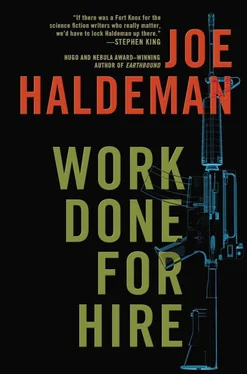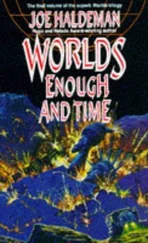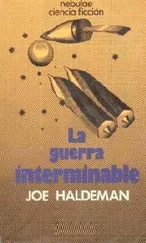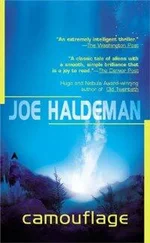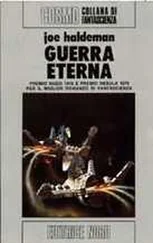Or I could wait and see who they wanted dead. There were a couple of people I’d gladly kill for free; maybe I’d be lucky.
It occurred to me that that was a thing any guy might say casually. But it does mean something different if you once assassinated people for $1,300 a month and all the army chow you could eat.
Presumably most of the people I’d killed as a sniper were guys like me, ordinary people snared by chance or circumstance and turned into killers by their own government. I told myself that I could feel sorry that they were dead, without feeling guilty for being an instrument in the chain of events that led to our unfortunate meeting. I was drafted, and most of them were forced into uniform by poverty and politics.
This was completely different, except for the tool engaged. The target would probably not know he was a target, and presumably wouldn’t be shooting back.
And the person shooting him would not be a just-following-orders soldier. He’d be a hired assassin.
I should take the whole thing, money and all, down to the police station, and wash my hands of it. Any normal person would.
Instead, I stared at it and thought.
If I did have an immortal soul, it was already forfeit. So ponder the ponderable: first, could I do it and not get caught?
With no wind deflection and a clear shot, working from a stable platform, I could put a bullet into “the head zone,” head or neck, from two thousand meters, call it a mile and some change. One or two follow-up rounds into the thorax. A little less accurate with a silencer, I assumed; I’d never used one.
My first thought was that if it was a city situation, like Kennedy, King, or Semple, then no way. Of course those assassins hadn’t used silencers. Still, there would probably be witnesses and then a short chase.
With a silencer, though? From a mile away? It could be done. But could it be done by me?
I supposed it would depend on the target. If it was somebody I would kill for free, then sure, I’d do it for money. If it was some random stranger, then not. Maybe not.
The phone rang.
It wasn’t Kit; she always called the cell. And not before dawn. I let it ring four times and picked it up. “Well?” I said.
A woman’s voice. “If it was the right person, would you do it?”
I should have said, “I don’t know what you’re talking about,” and hung up. Instead, I said, “I don’t know enough. Who are you?”
“I can’t tell you that. I can tell you that we are not the government or enemies of the government; it’s not a political assassination.”
“Why should that be a plus? Being a gun for hire, with no principles involved, isn’t appealing.”
“You didn’t agree with the principles behind the war for which you killed sixteen people.”
“Apples and oranges. I didn’t have a choice.”
“You did, though. As you have said and written. If you had gone to jail for refusing the draft, it would have been less time out of your life. Less moral complication.”
“Yeah, happy hindsight.” Any way I could trace this call? I took the cell phone out of my shirt pocket.
“Put the cell down,” she said. “If you call anyone I’ll hang up.”
The blinds were closed. “You have a bug in this room?”
“There are other ways we can tell what you are doing. I need an answer.”
“Why me? I need that answered.”
“Expert marksman, unmarried, apolitical and agnostic, low-income disabled veteran against the war.”
“Okay, that must narrow it down to a thousand. Why me?”
“Because we can trust you to do the right thing. You wouldn’t want Kit to come down with a rare blood disease and die slowly. Would you?”
“What? Blood disease?”
“Timothy Unger. Google him. We’re serious.” The line went dead.
That was Timmy’s name, the e-mail ammunition boy. I looked him up and found that he was born in Iowa City twenty years ago and died last year of a heart attack.
Too young. There was an autopsy, the obit said, but no follow-up story except for funeral arrangements. But then I tried “rare blood disease” + “Iowa City” + “fatality” and his name came up, dead last year. It was supposedly myelofibrosis rapidly transformed into secondary acute myelogenous leukemia leading to massive cardiac failure. The doctors were “mystified” by the sudden onset of the disease.
Maybe there was some mysterious poison that mimicked myelofibrosis, whatever that was. Or maybe they just put a nickel in the Google machine and asked it for the name of someone local who had died of a rare disease last year.
No. That wouldn’t explain the e-mailings.
Anyhow, this was way beyond the possibility of a hoax, for any reason. Too complicated and expensive and incriminating.
I sat down by the rifle and rubbed its smooth stock. They’re giving me time to think this over, before they identify the victim. I have to kill X or they kill Kit. For what values of X would I refuse?
How had they found me; why had they chosen me? My slight prominence as a writer? Well, I did write about war and about being a sniper. I should’ve chosen Gothic romance.
The phone rang. I picked it up and got a recorded message—same female voice—that was repeated once: “Take the rifle and targets and ammunition right now and drive to the east end of the Coralville dump, where people go for shooting. When there’s enough light, sight in the rifle. Collect all your brass and your targets and leave. You will be watched.”
It was just starting to get light in the east. I zapped a big mug of water and stirred in enough instant coffee and cocoa to wake up the dead, and took it out to the car, and came back for the weapon and targets and ammunition. It felt odd, carrying a rifle without a sling, just walking out to the car like any garden-variety nutcase out to shoot a president or a classroom full of innocents. I knew the bad guys were watching me, but who else? Was one of my nutty neighbors calling the cops, and would they listen? He always acts funny and keeps to himself, says he’s some kinda writer. I always knew there was somethin’ wrong with him.
So if I zero in the rifle, am I complicit? Yes and no; I could still decide not to shoot or to miss the target.
No car was following me as I drove out to the Coralville dump. If they really would be watching me, as they said, they were already there. Or in orbit, for all I knew.
Tried to hatch a plan as I drove through the hazy dawn. There was one aspect I could control: I didn’t have to sight the rifle accurately. I could misalign the finderscope and send the bullet anywhere.
Sighting in a rifle-and-scope combination is simple if the equipment is good. This was all solid and new, the same combination I used in the desert, a red-dot Insight MRD on the M2010 sniper rifle. To sight it in you put a “dot” target—a spot on a piece of paper—a measured distance away, and fire carefully from a stable platform. Once you’re comfortable with the rifle, you try to get three-shot groups within about a one-inch circle—smaller circle for a real pro. Then you click the rifle sight for windage (left and right) and drop (up and down) until that group consistently appears where the scope’s crosshairs intersect, on the printed spot.
Hunters often sight for seventy-five yards; in the desert we usually went out to four hundred. So I was to do half that.
There were no obvious witnesses at the Coralville dump. A lot of crows and a slightly pungent atmosphere. A hand-lettered sign saying SHOOTERS led me to the left.
The setup was simple. Two weathered picnic tables set up with sandbags, next to a plank platform for sighting in from a prone position. I would sit.
Читать дальше
